The COVID-19 pandemic has had various impacts on global efforts to achieve more sustainable ways of living. Among them, distancing measures, including school closures and restriction of gatherings, has made it challenging to foster collaborative learning and co-creation among people in physical settings such as communities, workplaces, and schools. Practitioners working on the ground are devising creative solutions to these challenges, including the online shift of communication and learning. Such responses may result in new gaps in opportunities for collaboration among people by, for example, deepening inequalities related to lack of access to technology and resources. They may also enable broader participation or the development of more practical activities with a deeper consideration of the background causes of unsafe and unsustainable living conditions.
The session starts with the sharing of experiences by ground-level project implementers supported by the Sustainable Lifestyles and Education Programme of the UN One-Planet Network in recovering and enhancing collaborative learning and co-creation during the COVID-19 crisis period, with particular focus on inclusiveness. Then the panellists, including civil society and governments working on sustainable lifestyles will discuss the following:
Programme Director, Sustainable Consumption and Production (SCP), IGES
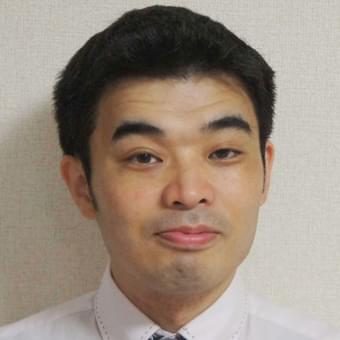
Atsushi Watabe
Programme Director, Sustainable Consumption and Production (SCP), IGES
Dr Watabe received a PhD in Media and Governance at Keio University. Since he has joined IGES he worked for several programmes including the international cooperation programmes to develop climate change policies and the action study on the recovery from the Nuclear Accident in Fukushima. He has led the Coordination Desk of the Sustainable Lifestyles and Education Programme of the UN 10-Year Framework of Programmes on Sustainable Consumption and Production Patterns (One-Planet Network) since 2015. With his background in sociology, he has collaborated with and learned from many community-level initiatives to enable sustainable ways of living.
Education Manager, Akatu Institute
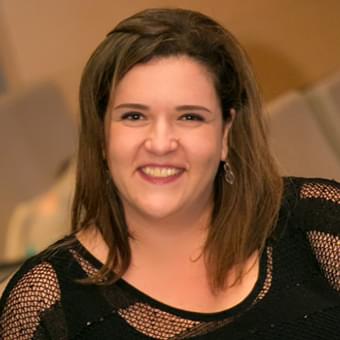
Denise Conselheiro
Education Manager, Akatu Institute
Denise Conselheiro, Education Manager at Akatu Institute, holds a degree in Journalism, a law degree and a postgraduate qualification in International Relations. She has over 10 years of experience in developing and executing education and communications strategies for social and environmental causes, with a focus on human rights and children’s and adolescents’ rights, in organizations such as Amigos da Terra – Amazônia Brasileira, Conectas Human Rights, and CEATS/FIA-USP.
Environmental Education Project Manager, African Conservation Trust
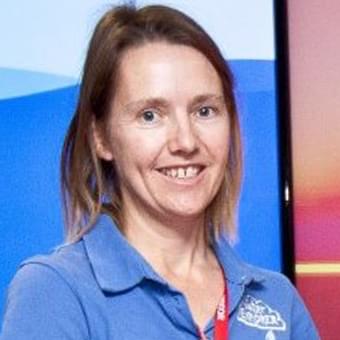
Bridget Ringdahl
Environmental Education Project Manager, African Conservation Trust
Bridget Ringdahl holds a Masters degree in Environmental Sciences from the University of Lund Sweden, an Honours Degree in Environmental Science from UCT and an Bachelor of Sciences from UKZN. She is passionate about the environment, is plant-based and lives as sustainably as possible.
In her early career she worked as an environmental consultant specialising in GIS, but soon moved onto WESSA where she took up a roll as a Project coordinator for the SADC Environmental Education Programme that was part funded by SIDA and US AID.
In 2006 she was then appointed as the Programme manager for the WESSA Eco-Schools programme. During the 10 years she managed South Africa’s most well known and respected EE programme.
In 2014 she then set up the International Water Explorer Programme in South Africa and has grown this programme into an extremely successful action-orientated school intervention programme that support the curriculum. She also implemented the IGES Japan, Global Search for Sustainable Schools project
Associate Professor & Centre Director, Centre for Collaborative Learning for Sustainable Development, Faculty of Education, Inland Norway University of Applied Sciences
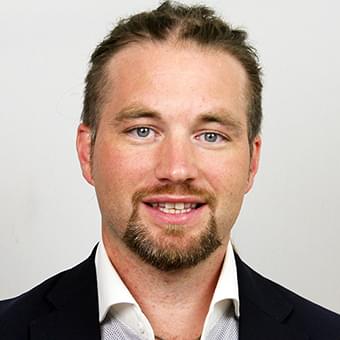
Robert J. Didham
Associate Professor & Centre Director, Centre for Collaborative Learning for Sustainable Development, Faculty of Education, Inland Norway University of Applied Sciences
Robert J. Didham (Ph.D.) is the director of the Center for Collaborative Learning for Sustainable Development and an associate professor at Inland Norway University of Applied Sciences. With a background in community-based sustainable development, public participation and social learning, Dr. Didham has extensive experience in interdisciplinary research and capacity building projects. He has coordinated multi-country research on education for sustainable development, sustainable consumption, and adaptation planning, and he has led policy support projects for several national governments. Previously, Dr. Didham was the senior coordinator for capacity development and education at the Institute for Global Environmental Strategies (IGES), based in Japan, where he worked extensively throughout the Asia-Pacific region. At the Center for Collaborative Learning, Dr. Didham is overseeing action research projects on participatory planning and local implementation of the Sustainable Development Goals (SDGs) and on integrating transformative learning approaches in both formal and non-formal education.
Programme Manager, Sustainable Consumption and Production, IGES
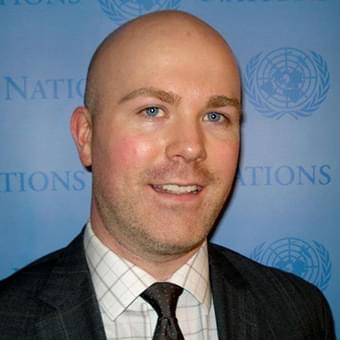
Dwayne Appleby
Programme Manager, Sustainable Consumption and Production, IGES
Dwayne Appleby is Program Manager for Sustainable Consumption and Production Institute for Global Environmental Strategies in Japan. Over the past ten years, he has worked with governments, financial institutions, businesses and the not-for-profit sector to address systemic issues of sustainability ranging from industrial production to national policy and consumer behaviour. Dwayne has also worked with UN Environment on several initiatives focused on sustainable lifestyles and is a founding member of the Global Research Forum on Sustainable Production and Consumption. Dwayne holds an MSc. in Development Studies from the London School of Economics, where his studies focused on the role of government in fostering the transition to sustainable 'green' energy.
Communication Specialist, Armenian Women for Health and Healthy Environment (AWHHE) NGO
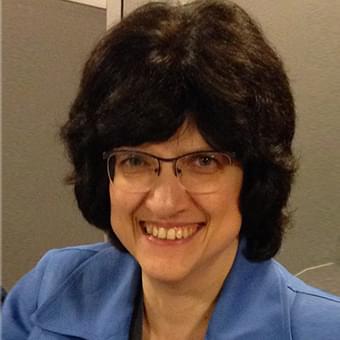
Gohar Khojayan
Communication Specialist, Armenian Women for Health and Healthy Environment (AWHHE) NGO
MS. GOHAR KHOJAYAN studied in Moscow State Pedagogical University and received her MA degree from the Yerevan Brusov State University of Languages and Social Sciences in 1989 following which she taught at the Yerevan State Pedagogical Institute and the Garmirian School of the Armenian General Benevolent Union in Beirut, Lebanon. During 1993 – 2003 she worked for the United Nations Children’s Fund (UNICEF)- Armenia as Communication Officer and Planning, Monitoring and Evaluation Officer. During 2004-2005 she worked as Public Education Director for the Yerevan office of the Armenian EyeCare Project (AECP), a US-based charity organization. In 2010, following a career break for family reasons, she joined the Armenian Women for Health and Healthy Environment (AWHHE) NGO as Communications Specialist.
President/ Coordinator for GSSS Philippines, PCEAS Inc.
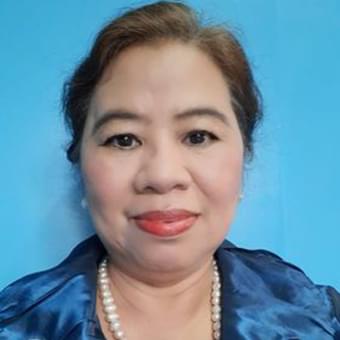
Socorro Leonardo Patindol
President/ Coordinator for GSSS Philippines, PCEAS Inc.
Ms. Socorro L. Patindol has more than 15 years relevant hands-on professional experience as environmental and social safeguards specialist having been employed within consultancy, government, and international financing institutions. She worked as environment, health and safety consultant on various development projects and then worked for the World Bank Philippine Office from 2003 to 2008 as Environment Officer and as an environment/ social safeguards consultant.
She holds two post graduate degrees (M.Sc.) in Environmental Studies (Phils) and M. Sc, (AGR) Environmental Resource Mgt (Ireland); a Diploma on International Environmental Law and she is a PhD Candidate in Environmental Management.
She is a trained and proficient ISO 14001: 2015 Lead Environmental Auditor. She retired as Asst. Vice President for Environmental Management of the Aboitiz Power Corporation. Currently, she is the President of PCEAS, Inc.
Director, Foundation for Sustainable Tropical Agricultural Production, University of Tropical Agriculture (UTA) Colombia
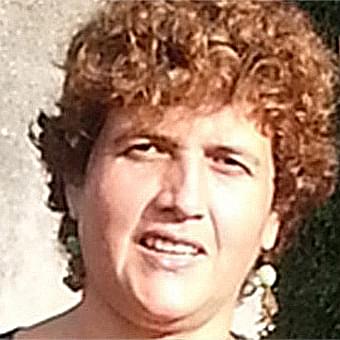
Lylian Rodriguez Jiménez
Director, Foundation for Sustainable Tropical Agricultural Production, University of Tropical Agriculture (UTA) Colombia
Lylian Rodriguez Jiménez got PhD in Tropical Sustainable Agriculture at Humboldt University. She has worked as a researcher, consultant and coordinator at several Non-Governmental Institutes and Universities in Colombia, Viet Nam, and Cambodia there she conducted researches and capacity development programmes on Integrated Framing Systems.
She has directed the Foundation for Sustainable Tropical Agricultural Production at UTA since 2003 where she led various projects in supporting rural communities and families securing healthy, environmentally sustainable and economically sound food production and consumption, such as the promotion of renewable energy (biogas plants, gasifiers, solar energy), food/feed production systems and sustainable livestock production.
Director: Creating Sustainable Value (Pty) Ltd and a Senior Sustainability Consultant to the Climate Investment Funds
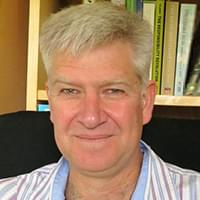
Mike Ward
Director: Creating Sustainable Value (Pty) Ltd and a Senior Sustainability Consultant to the Climate Investment Funds
Mike Ward is a sustainability professional with over 25 years’ of experience at the intersection of sustainable development, learning and change. Between 1998 and 2011 he co-developed and ran international programmes on education for sustainable development in Africa, Asia and Sweden. Mike is currently the founding director of Creating Sustainable Value and also works as a Senior Sustainability Consultant with the Climate Investment Funds on just transitions. He was previously an Executive Director at The Wildlife and Environment Society of South Africa. Mike has a Masters in International Environmental Science, a masters of Business Administration and is currently registered for a PhD in Education with Rhodes University
Deputy Director, International Strategy Division, Global Environment Bureau, Ministry of the Environment, Japan
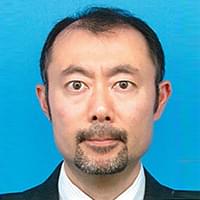
AMAKO Naoki
Deputy Director, International Strategy Division, Global Environment Bureau, Ministry of the Environment, Japan
Since he joined the Ministry in 2003, Mr. AMAKO has mostly worked in the field of nature conservation. Besides his experiences as a park ranger in eastern Hokkaido and Ogasawara Islands, he has worked on several issues at the headquarters including invasive alien species, migratory birds, coral reefs, Ramsar, CITES and CBD. He is currently involved in global environmental affairs in general, including matters related to UNEP.